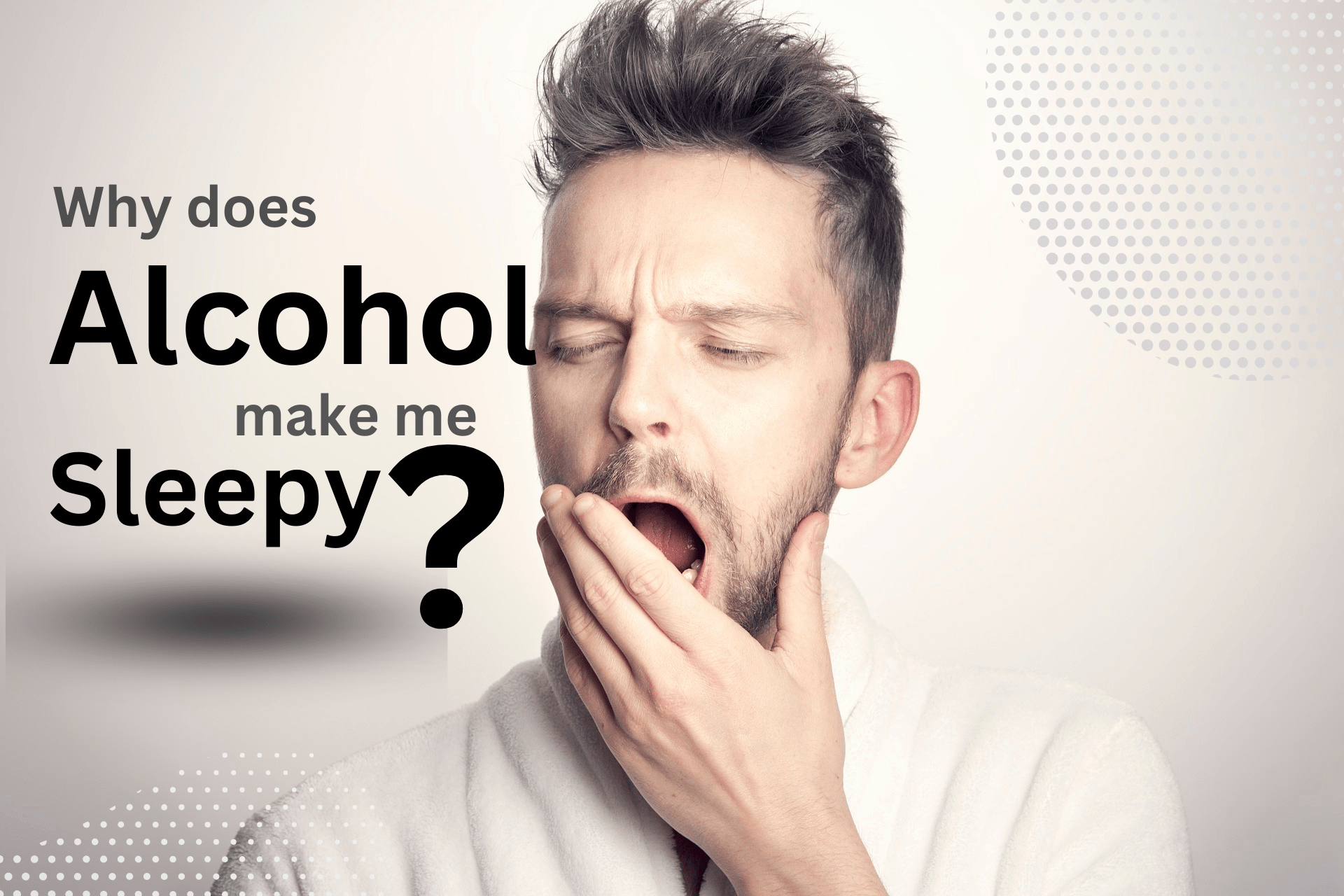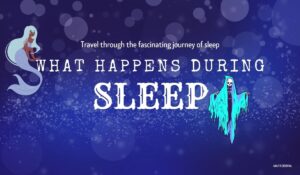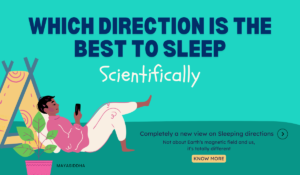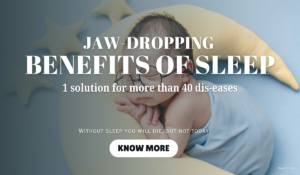Introduction
Have you ever wondered why drunken people go to sleep easily but look sleep-deprived the next day? In this blog, we gonna see how alcohol affects sleep with some tips at the end.
Alcohol and sleep
Why does alcohol make me sleepy and how?
Alcohol is a central nervous system depressant, which means it reduces the activity of the brain and the spinal cord. As it reduces the brain’s activity, we feel sleepy. But the problem arises when our body starts to degrade alcohol.
Life of alcohol: The half-life of alcohol is 4 – 5 hours, which means our body takes 4 -5 hours to eliminate half of the alcohol.
Alcohol’s short-term effect: Initially, when you consume alcohol, due to its sedative effect it makes you sleep. But when your body starts to degrade alcohol, its effect starts to decrease which means you will wake up in the middle of sleep.
Why? Because sleep was not induced naturally by adenosine*, rather it was initiated by alcohol. Therefore you will wake up as soon as its effects go.
*Adenosine is a substance that reduces the brain’s activity and makes us sleep usually.
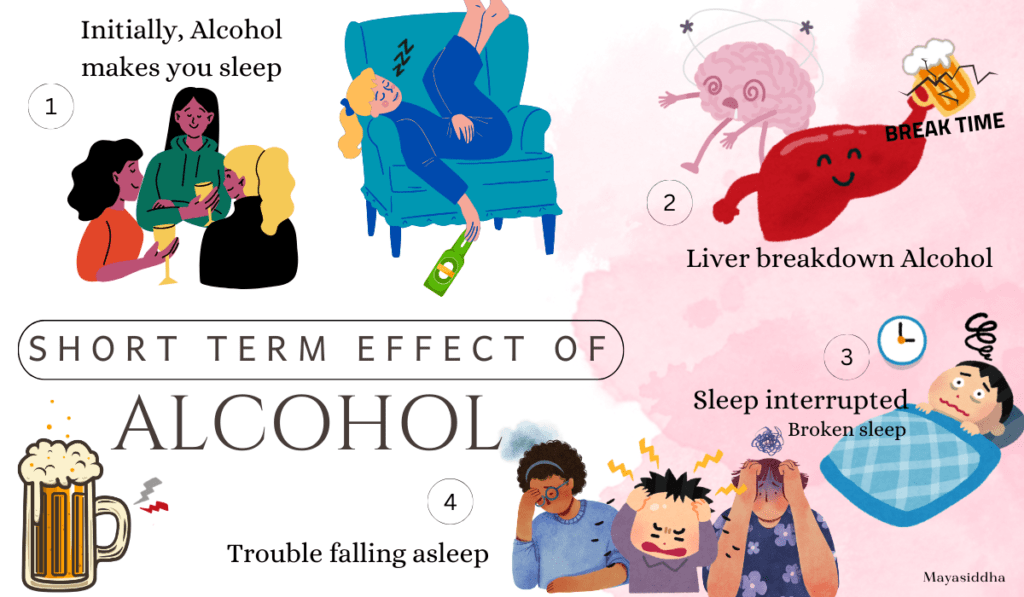
The next day you will be sleep-deprived. To stay awake and avoid sleepiness, that person may take caffeine-related products during the day and consume alcohol at night to sleep.
Why do you drink more?
After a certain period, that person becomes tolerant of alcohol. So a regular dose of alcohol will not be enough to sedate and make you sleep. Automatically that person will increase the quantity of alcohol.
Alcohol and Adenosine: Alcohol can increase the extracellular adenosine level. Thus the increased adenosine level can affect the cell-signalling, cell functions and neurotransmitter functions. This alteration in normal cell function may lead to various health issues.
Why does alcohol make me sleepy
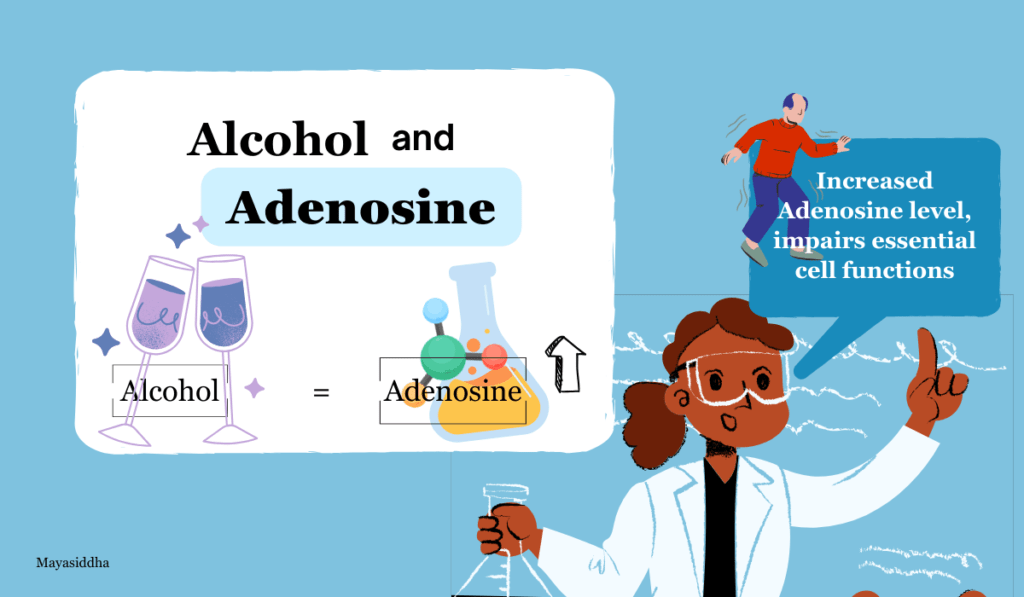
What happens to adenosine-natural sleep inducer, when a person takes caffeine-related products in the morning and alcohol at night?
Caffeine, Alcohol and Adenosine: Adenosine naturally makes us sleep, whereas caffeine steals adenosine’s place but it keeps us awake. Adenosine will accumulate until caffeine leaves the body. The problem is caffeine takes around 10 hours to leave the body and this idiot-alcohol raises the adenosine level even more.
To avoid alcohol-induced sleep deprivation, you might intake caffeinated products during the day and drink alcohol at night to fall asleep. Because of caffeine and alcohol, adenosine will accumulate excessively, which can lead to various health issues.
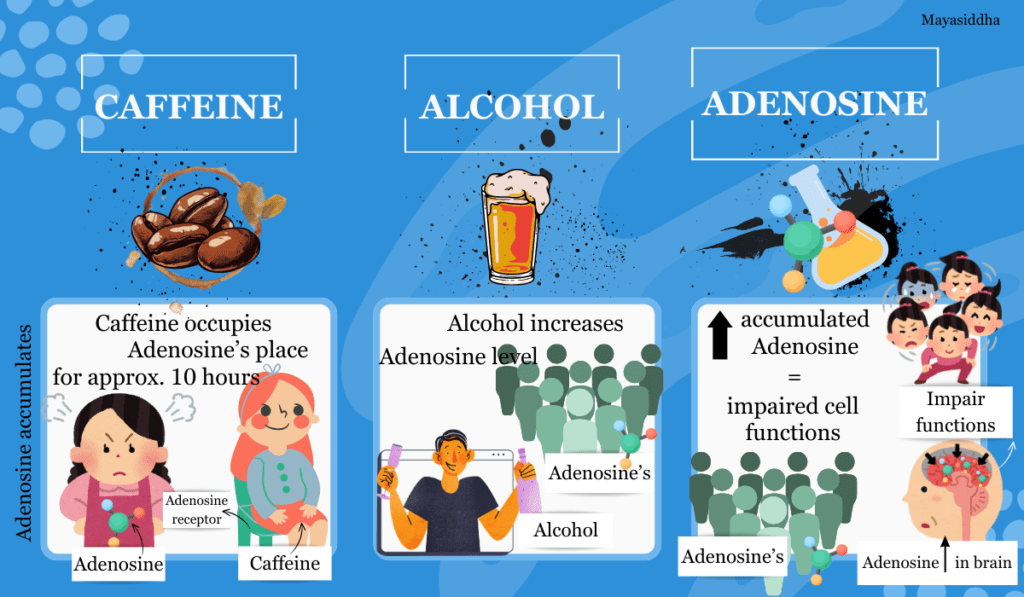
| Don’t mix alcohol and caffeine (energy drinks). Caffeine masks the sedative effect of alcohol and keeps you alert. As a result, you will consume more alcohol which can lead to alcohol poisoning and negative after-effects. |
Have you felt thirsty and dehydrated after alcohol intake? Do you urinate often after alcohol intake?
Why? Because alcohol is a diuretic. A diuretic is a substance that increases the excretion of water from the body through urine. So alcohol intake leads to increased urination which leads to dehydration and thirst. Drinking alcohol before bed can disrupt sleep by causing frequent urination.
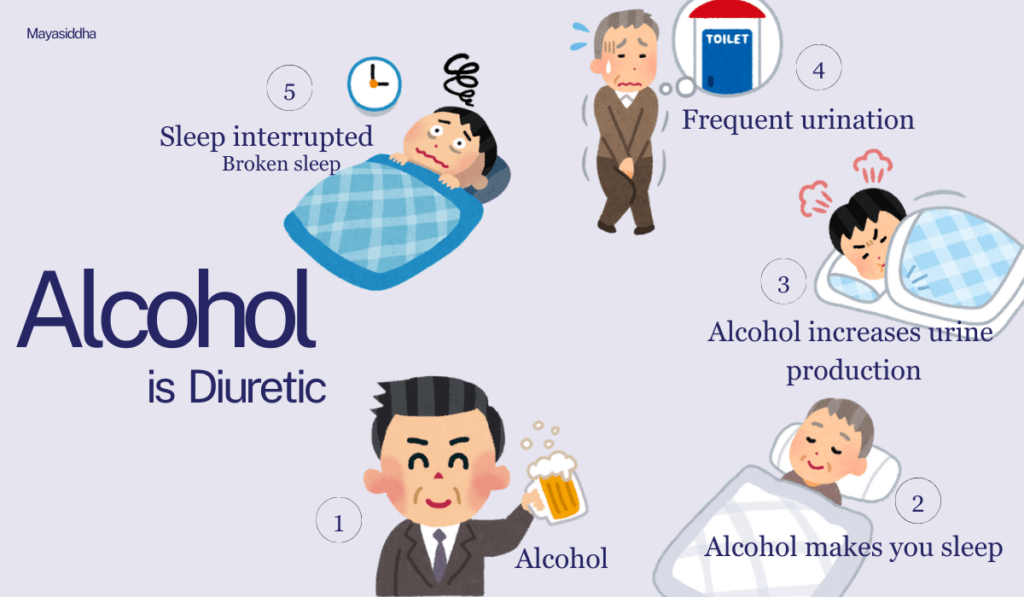
| “Alcohol and medicine together are a big No-No” Alcohol reacts with certain medicines. So alcohol and medicines should not be taken together. Alcohol itself causes dangerous health issues, when it is taken along with medicines it will cause serious side effects. |
Summary
Alcohol reduces the brain’s activity and makes us sleep. Since sleep is not induced naturally by adenosine, as soon our body starts to break down alcohol, its effect reduces which means you will wake in the middle of sleep. This alcohol also raises the adenosine level, which can affect cell and neurotransmitter functions and result in various health issues.
Tips
- Don’t drink alcohol to fall asleep.
- Don’t drink alcohol on an empty stomach.
- Since the liver breaks down alcohol, regular and excessive alcohol consumption overloads the liver and causes liver dysfunction.
- Don’t take alcohol and medicine together to avoid severe side effects.
- Don’t take alcohol and caffeinated items, especially energy drinks together to avoid alcohol poisoning.
- At least avoid drinking alcohol 5 hours before bed.
- Don’t suddenly stop alcohol intake to avoid withdrawal effects. Tapering is the right way.
- If you deal with withdrawal effects and find it difficult to taper alcohol, please contact the medical professional for guidance and help.
Reference
- Paton, A. (2004). ABC of alcohol: Alcohol in the body. BMJ : British Medical Journal, 330(7482), 85-87. https://doi.org/10.1136/bmj.330.7482.85.
- Nassef Sefen, J. A., Patil, J. D., & Cooper, H. (2022). The implications of alcohol mixed with energy drinks from medical and socio-legal standpoints. Frontiers in Behavioral Neuroscience, 16. https://doi.org/10.3389/fnbeh.2022.968889.
- Ferré, S. (2011). Alcohol and Caffeine: The Perfect Storm. Journal of Caffeine Research, 1(3), 153-162. https://doi.org/10.1089/jcr.2011.0017.
- Dohrman, D. P., Diamond, I., & Gordon, A. S. (1997). The Role of the Neuromodulator Adenosine in Alcohol’s Actions. Alcohol Health and Research World, 21(2), 136-143. https://www.ncbi.nlm.nih.gov/pmc/articles/PMC6826818/.
- Colrain, I. M., Nicholas, C. L., & Baker, F. C. (2014). Alcohol and the Sleeping Brain. Handbook of Clinical Neurology, 125, 415. https://doi.org/10.1016/B978-0-444-62619-6.00024-0.
- Stein, M. D., & Friedmann, P. D. (2005). Disturbed Sleep and Its Relationship to Alcohol Use. Substance Abuse : Official Publication of the Association for Medical Education and Research in Substance Abuse, 26(1), 1. https://doi.org/10.1300/j465v26n01_01.
58 comments on this post so far:
Add your Thoughts:
Loading comments...

